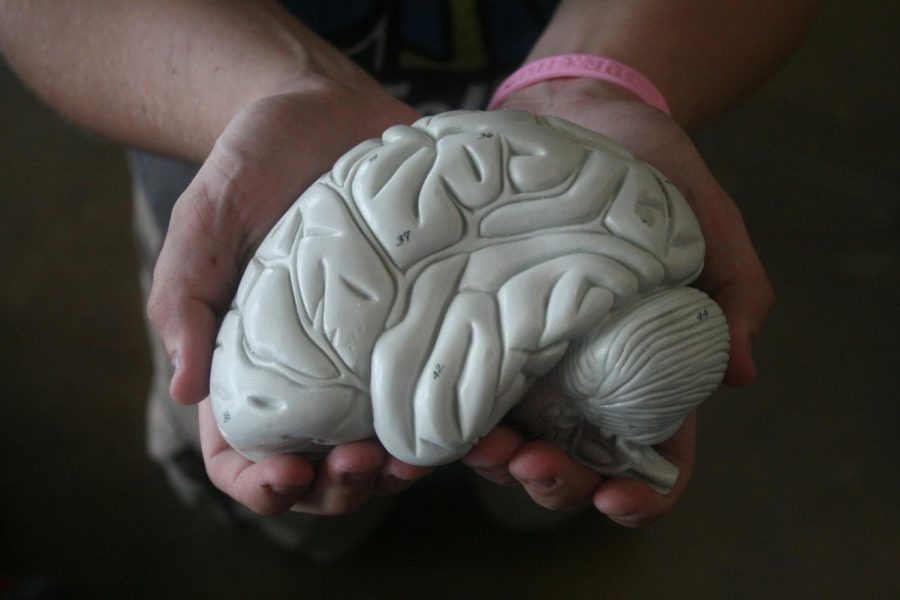Suicide Prevention
November 30, 2018
It’s 9:30 p.m., and you look up to see your favorite cartoon playing on your family’s flatscreen. As you eat a snack and laugh along with the recorded audience, you become completely oblivious to the outside world. What you didn’t know is that within those 30 minutes of entertainment, two teenagers living in the U.S. committed suicide.
Sept. 24, a 13-year-old eighth grader at Bethel Middle School died by suicide. When something tragic happens in such a close knit community, one cannot help but ask, ‘Where do we go next?’ Sophomore Will Wilson suggests a solution.
“Parents and faculty need to take more action,” Wilson said. “But it’s something that parents should talk about rather than teachers.”
According to “Center For Discovery,” teen suicide is the third leading cause of death in America, and statistics show that over 20 percent of adolescents are now diagnosed with clinical depression. Kids struggling with mental health issues often will not reach out for help because they do not believe their problems are bad enough. This problem is true for sophomore Maddox Griffin, who struggles with depression.
“I never really sought help for it, because I didn’t think it was that big of a deal,” Griffin said.
Many teens will not only refuse to seek help, but will try to hide what they are going through internally. Griffin even sees this problem in his friend group.
“We tend to hide it, because we don’t want others to know,” Griffin said.
As a student, it is probable to see someone who is struggling with depression, and it might even be someone who is scared to ask for help. What you might be able to offer this person is a set of open ears, or maybe even a phone number if they ever need you. According to the “Suicide Prevention Lifeline,” a friendship can be a sign of hope to someone who is struggling.
“If I knew someone going through that, I would reach out and try to get them to talk,” Griffin said.
With depression, simple tasks like homework and school can become stressful to complete. On many occasions, students with depression or other mental health problems will fail classes, not graduate, and in extreme cases, get in trouble with law enforcement. 12.8 percent of students in the U.S. with depression will fail at least one class, according to “National Institute of Mental Health.” Sophomore McKayla Taylor struggles with depression, and it affects her ability to do well in school.
“Being a student with depression is difficult, because I don’t have any motivation for anything,” Taylor said. “You just want to give up. You feel lost.”
If someone has depression, keeping those negative thoughts inside can eat away at their happiness. Depression makes it hard to stay optimistic, especially with previous struggles. According to Taylor, it affects her every day life.
“Getting out of bed seems like an achievement, and feeling like you have to hide all your emotions and put on this front around everyone knocks you down and triples the stress,” Taylor said.
Although there are many students with depression, there is a greater number who do not struggle with depression. Being someone who has never experienced depression makes it hard to sympathize and understand. Many teens have no idea what is going on in their friends’ heads, so they do not know how to offer help.
“We have pep rallies for sports, yet we don’t spend time making students know that they are welcome to open up about their problems,” Taylor said.
Students may joke about depression and suicide among themselves, but Taylor says that those jokes can impact students who are struggling.
“People’s actions can affect how someone feels,” Taylor said. “And sometimes their words hurt even more.”
Depression does not always come and go–it is a constant mindset for a large number of people. Having something on their minds that makes them overthink and worry more than others do can be hard.
“You see and deal with it at home, school, anywhere you go,” Taylor said. “It’s there.”
Mental health issues are often genetic, and it can also be difficult living in a house with other people struggling with depression.
“Dealing with anxiety and depression runs throughout my family,” Taylor said. “And as I’ve gotten older, it’s gotten worse.”
Coping with depression is not an easy task. Many turn to therapy and medication to help ease the issues, but for the most part, recovery starts with themselves.
“Alongside therapy, you have to find ways to cope with your depression by yourself,” Taylor said. “Without my own reassurance, it feels like I’m drowning.”
With high rates of teenage suicide, it is clear how abundant the problem is, especially when it happens to someone we know. It is important to remember as a young adult that it is not time to lose hope, and there is still time to turn it all around. Teenagers are impulsive, but this is not the time or place to make that life altering decision.
“[Suicide] is a permanent fix to a temporary problem,” Wilson said.




Jane | Dec 9, 2018 at 1:05 pm
Great job! I hope someone sees this and it changes their life.